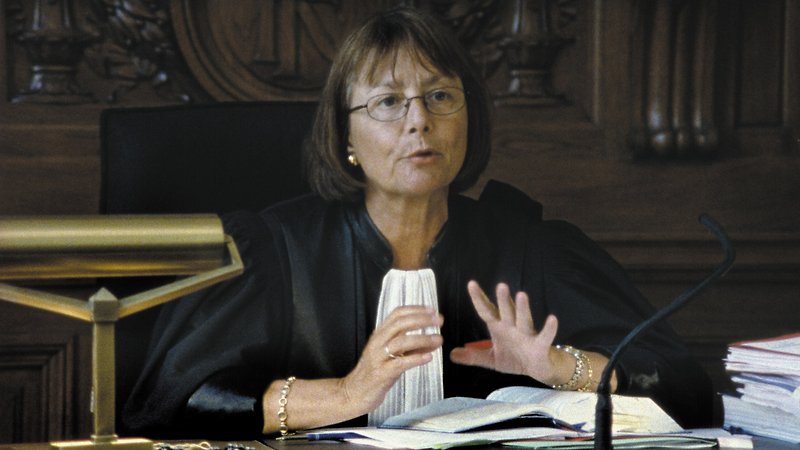Various petty felons and their defenders confront a formidably sensible magistrate – and she metes out French justice in this fascinating fly-on-the-wall courtroom documentary.

Screened as part of NZIFF 2005
The Tenth District Court: Moments of Trial 2004
10e Chambre, instants d'audiences
Far more – and far less – than ‘Judge Judy Goes to Paris’, Raymond Depardon’s minimalist portrait of the French legal system in action is a deceptively straightforward work. Covering a handful of cases, Depardon records the proceedings from a few unvarying angles (the accused, the prosecutor, the magistrate) and presents his findings in a rigidly formalised pattern: two or three cases from a given session are depicted, and then the magistrate’s decisions, delivered at the end of the session, follow. As we must sit through other, unrelated testimony before learning the resolution of any given case, this structure of delayed revelation creates a mild suspense, the true purpose of which Depardon fully reveals only at the end of the film.
Although the cinematic aesthetic is ascetic, the film is rich in content. The mini-narratives slowly revealed by the magistrate’s persistent questioning (in the French judicial system, judges are far more active and inquisitorial than in those derived from the British tradition) are intricate and engrossing, even when the charges seem slight (carrying a weapon, bad language). Meatier charges (harassment, drug-dealing) bring with them entire, complex histories, outlined with brutal economy by the magistrate’s questions and the defendant’s evasions. The personalities described are even more compelling, and they range from blithely arrogant academics to disastrously candid immigrants to genuinely troubled lost souls. It’s amazing just how much each of the participants reveals of themselves, even in surroundings of such formality.
The officers of the court are no less individual: some of the most memorably odd figures in the film are the lawyers, grimacing, pouting, apologising. Presiding over all this eccentric performance is the long suffering magistrate, Michèle Bernard-Requin, and she’s the glue holding the film together. All of the cases we see are heard by her, at all hours of day and night, and, though she’s far and away the most composed and controlled character on display, we nevertheless acquire a surprisingly detailed understanding of her personality as the proceedings unfold. We might even suspect that Depardon has deliberately structured his film as a slow reveal of his mysterious central character. Or is that an illusion of intimacy? — Andrew Langridge